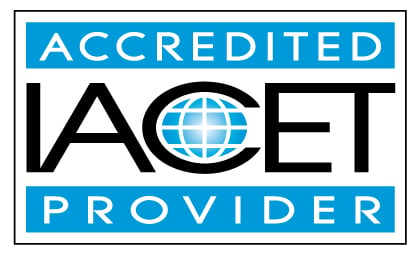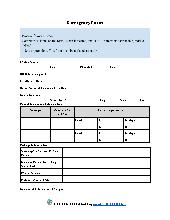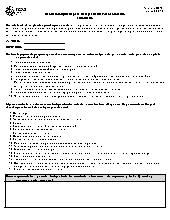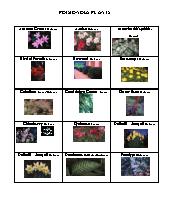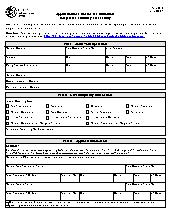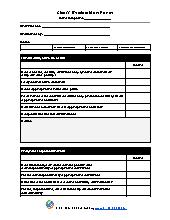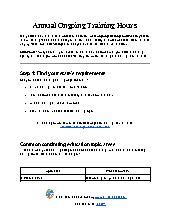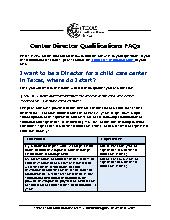30 hour Texas Director Annual ONLINE
This course is designed for directors working in a licensed child care facility or a Primary Caregiver of a licensed child care home in Texas. This course fulfills the annual 30 hour training requirement including:
- Required training topics:
- Child Growth and Development
- Responsive Interactions and Guidance
- Learning Environments, Planning Framework, Curriculum, and Standards
- Supporting Skill Development
- Diversity and Dual Language Learners
- Family and Community Relationships
- Health, Safety, and Nutrition
- Professionalism and Ethics
- Establishing and Maintaining an Effective Organization
- Business and Operations Management
- Human Resource Leadership and Development
- Requirements necessary to provide care for children of all ages, including those younger than 24 months of age
Course format:
- Online training: 30 hours of online self-paced training.
Upon registration, you may immediately access the online portion of your training.
By the end of this training, the learner will be able to:
- Identify different types of risk management common in child care.
- Define and identify the components of developmentally appropriate practice
- Identify materials and equipment for childcare programs that meet the needs of specific age groups in both shared or permanent space and align with the programs curriculum
- Identify staff evaluation tools and evaluation timelines that will assist with staff supervision and monitoring performance
- Identify community organizations that have training programs available that focus on child abuse.
- Describe positive discipline strategies to use in the classroom.
- Explain when to report child abuse
- Define what it means for administrators to mentor staff in early education.
- Describe the value of mentoring staff in early education.
- Define culture and cultural competency
- Demonstrate understanding of strategies that utilize good time management practices for teachers and child care providers.
- Recognizing and preventing shaken baby syndrome
- List which professions are mandated reporters.
- Describe the primary learning centers and their components.
- Identify ways to examine child behavior to prepare for guidance.
- Identify vehicle safety hazards that pose a major threat to children.
- Demonstrate an understanding of brain development in children birth through age three.
- Demonstrate an understanding of inclusionary practices.
- Demonstrate understanding of how to assess and meet the needs of children with special needs.
- Identify procedures that will promote a safe environment (indoor and outdoor).
- Identify curriculums specific to children birth through age three
- Demonstrate understanding of appropriate interaction with infants and toddlers.
- Demonstrate an understanding of how positive guidance promotes sound social and emotional development.
- Identify appropriate practice for the identification, prevention, and treatment of communicable diseases in childcare.
- Demonstrate understanding of positive alternatives of timeouts and certain disciplining techniques based on best practices.
- Describe the proper procedures of medication administration including: authorizations forms, documentation, storage, training, emergent issues, and resources.
- Give examples of ways to apply and model ethical behavior and professional integrity with staff and administrators.
- Describe the components of emergency preparedness in the child care setting.
- Identify the signs of child abuse and neglect.
- Demonstrate an understanding of the ADA.
- Demonstrate an understanding of developmentally appropriate practices for infants and toddlers with developmental, emotional, cognitive, language and/or physical needs.
- Describe techniques used in successful coaching and mentoring.
- Identify the key elements of an effective staff mentor program.
- Identify necessary information and format for a business plan
- Identify stages and milestones of development for ages 1 to 5
- Demonstrate an understanding of the necessary content of employee and parent contracts
- Identify the nutritional needs of children aged four and above.
- Identify ways to help parents and infants/toddlers handle separation and attachment.
- Define social emotional development in young children
- Identify strategies for integrating culture and diversity into an infant and toddler program
- List the steps to complete a report on abuse and neglect.
- Define healthy practices to mitigate the spread of germs and decrease the likelihood of SIDS in infants and toddlers.
- Identify the importance of professional development for child care professionals and strategies to make meaningful choices.
- Describe the meaning of positive discipline in the classroom.
- Identify strategies to assist children with food allergies/feeding concerns.
- Explain the importance of using contracts and employee training & screening procedures.
- Identify resources that will assist with record keeping
- Demonstrates understanding of the ADA and how it applies to childcare programs
- Demonstrate appropriate/effective responses as they relate to a variety of typical child care scenarios.
- Identify budget line items and basic budget development strategies
- Criteria to earn CEUs:
- Certificates are awarded when the following criteria have been met by the learner:
- Class has been paid in full
- All material has been reviewed
- All review questions and final test have been completed with a passing score of 80% or higher.
- Learning Assessment Method:
- Learners will be assessed through questions after every section is completed. Learners will not be
allowed to proceed to the next section of the training until all questions have been answered correctly.
Learners will be presented with a final test composed of true/false and multiple choice questions.
Upon successful completion of the training, learners will receive their certificate by email.
- Learning Methodology:
- Online material will be presented in the form of slides,
accompanied with speech. Videos will be used to demonstrate ideas and concepts. Charts and tables
will be used for illustration.
- Logistics/Required Technology:
- A stable internet connection is required for the completion of this course. Users are highly encouraged to take their online course on Google Chrome on either a laptop or desktop computer. Speakers and/or headphones are also required to hear speech.
- Payment Policy:
- Payments need to be made in full. No refunds will be issued after starting the class.
- Proprietary or conflict of interest disclosure:
- Unless otherwise stated in the course description none of H & H subject matter experts and editor has any conflict or proprietary interests related to the material they prepared in this course.
- Support Services:
- Please visit our contact us page
You are purchasing a session of an online training that includes online assessments. Your certificate will be emailed to you once you pass the final exam with a passing grade of 80%.
Your certificate will bear the name you provided to us when you signed up. For support and questions regarding the material presented in this class please contact us at info@childcareed.com. Please consult our frequently asked questions page for other questions or feel free to contact us.
No prerequisites are required for the completion of this course.
Hours breakdown
Topics / Categories
Group AdminAdministrators
Basic
Health, safety and nutrition
Curriculum and Environment
Professionalism
Child development
Community and Family
Administration and Management
Child Guidance
Observation and Assessment
Latest Jobs
- Frequently Asked Questions
- UNITED STATES OF AMERICA - Maryland
- UNITED STATES OF AMERICA - Louisiana
- UNITED STATES OF AMERICA - Texas
- Savings on Annual Requirements
- Big Savings for Texas Family Child Care Providers
- Texas Director Credential
- Texas Director Credential Application
- Training Requirements for Child Care Providers in North Dakota: A Clear Overview
- Requirements to Become a Primary Caregiver in Texas Child-Care Homes
- Child Care Director Certification: The Fast-Track Option for Busy Caregivers
- How Can Texas Child Care Providers Save Big on Annual Training?
- 🍼📋 What Do You Need to Work in Childcare in Texas?
- Texas Directors: Complete Your 30 Annual Hours Online
- Texas Director Credential Online
- Early Childhood Education in Texas
- Free Online Childcare Training In Texas
- How To Get a Daycare License In Texas
- Texas Rising Star: Staff Training Plans, Documentation Tips, and PD Ideas for Directors
- Illinois Day Care Centers: DCFS Rule 407 Updates Explained

